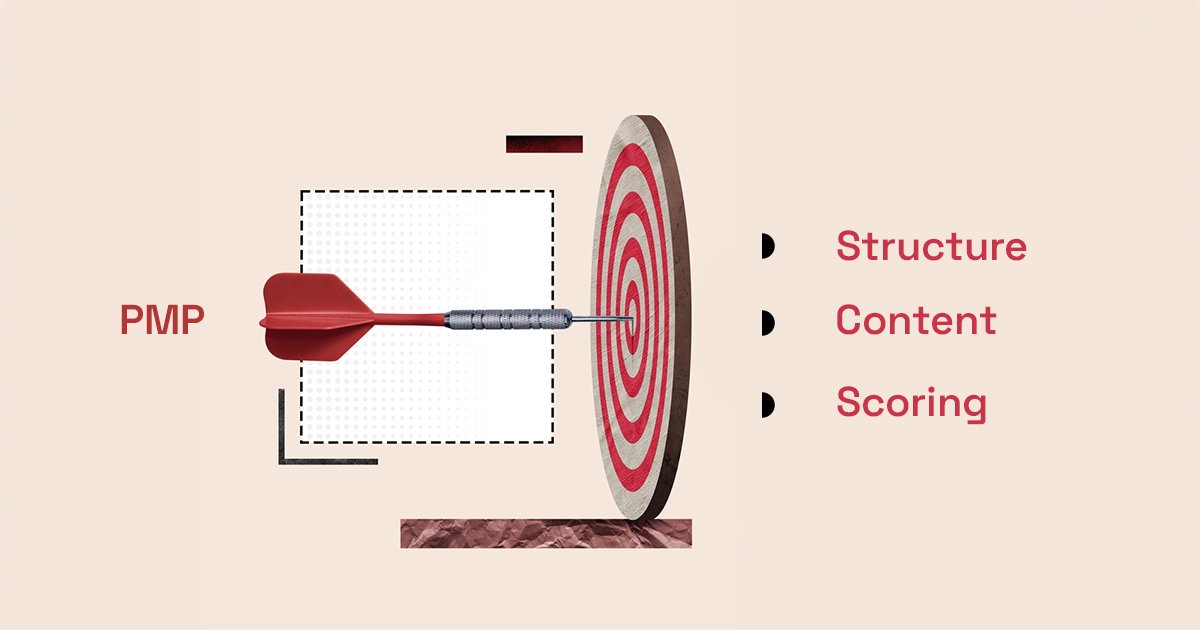Conquering the Project Management Professional (PMP) exam is a significant step towards advancing your project management career. But the unfamiliar format and content can create anxiety. This blog post will unveil the structure, content, and scoring system of the PMP exam, equipping you to approach it with clarity and confidence.
Structure of the PMP Exam:
- Format: The PMP exam is a computer-based test delivered at Pearson VUE testing centers globally.
- Duration: You’ll have four hours to complete the exam, including a brief pre-exam survey that doesn’t count towards your score.
- Number of Questions: The exam consists of 200 multiple-choice questions. A variable portion of these may be pretest items not scored but used for future exam development.
Content of the PMP Exam:
The PMP exam delves into the ten knowledge areas of the Project Management Institute’s (PMI) Guide to the Project Management Body of Knowledge (PMBOK Guide). These areas encompass the entire project lifecycle, from initiating and planning to execution, monitoring and control, and project closure. Here’s a breakdown of the weightings for each knowledge area:
- Project Integration Management (15%)
- Project Scope Management (15%)
- Project Schedule Management (15%)
- Project Cost Management (13%)
- Project Quality Management (12%)
- Project Human Resource Management (11%)
- Project Communications Management (9%)
- Project Risk Management (8%)
- Project Procurement Management (7%)
- Project Stakeholder Management (5%)
Understanding the PMBOK Guide: A thorough grasp of the PMBOK Guide is crucial for exam success.
Process Groups: Ensure you understand the five process groups (Initiating, Planning, Executing, Monitoring & Controlling, Closing) and how they interact across the ten knowledge areas.
Scoring of the PMP Exam:
- Pass/Fail System: The PMP exam utilizes a scaled scoring system. There’s no set minimum passing score; it’s statistically determined based on a pre-selected group of project management professionals’ performance.
- Scaled Score Range: Scores typically range from 0 to 1000.
- Content Weighting: Your performance in each knowledge area is considered, with more heavily weighted areas having a greater impact on your overall score.
- No Raw Scores Provided: You won’t receive a breakdown of how many questions you answered correctly in each knowledge area. You’ll only know your pass/fail status.
Additional Tips:
- Practice Exams: Utilize practice exams and question banks to test your knowledge and identify areas needing improvement.
- Time Management: Practice managing your time effectively during practice exams to finish the actual exam within the allotted time.
- Positive Mindset: Approach the exam with a positive attitude and focus on demonstrating your knowledge and project management skills.
By understanding the structure, content, and scoring system of the PMP exam, you can develop a targeted study plan and approach the exam with confidence. Remember, the key to success lies in thorough preparation, effective practice, and a positive mindset.




